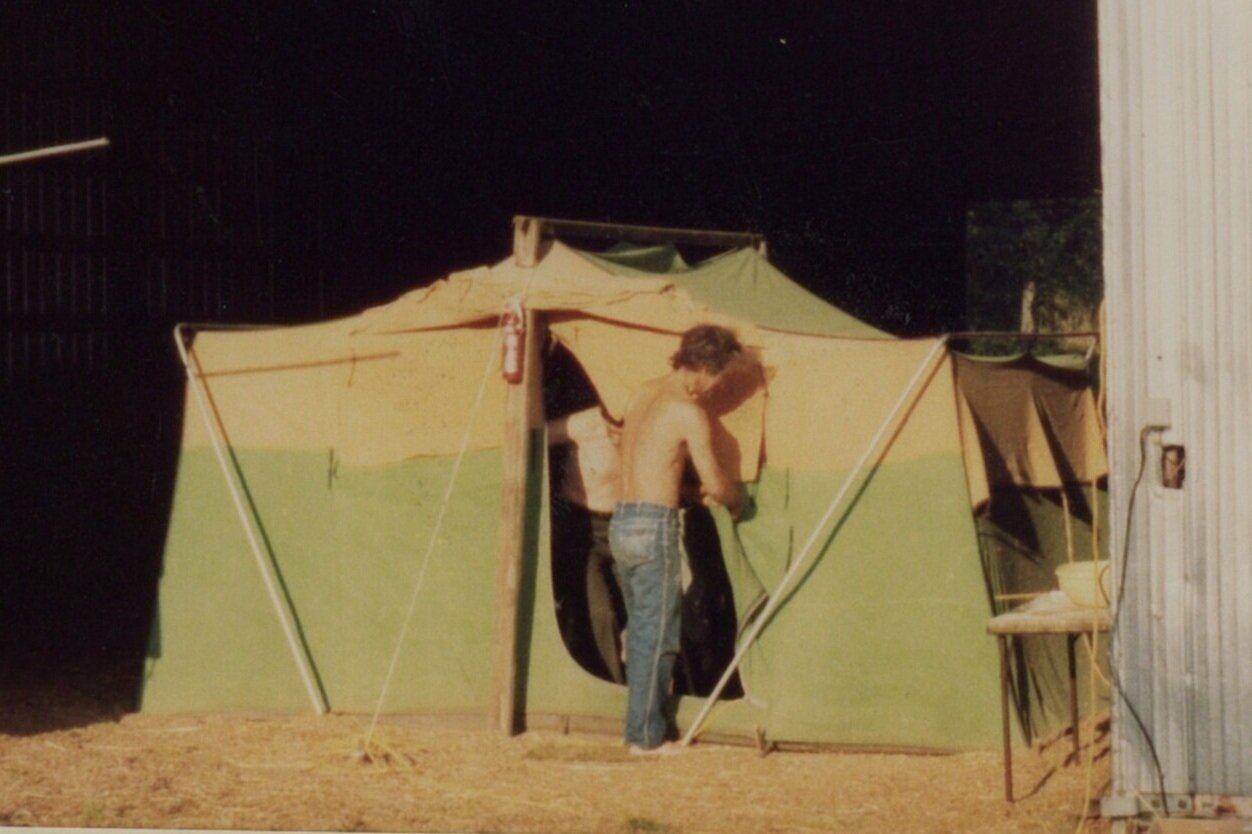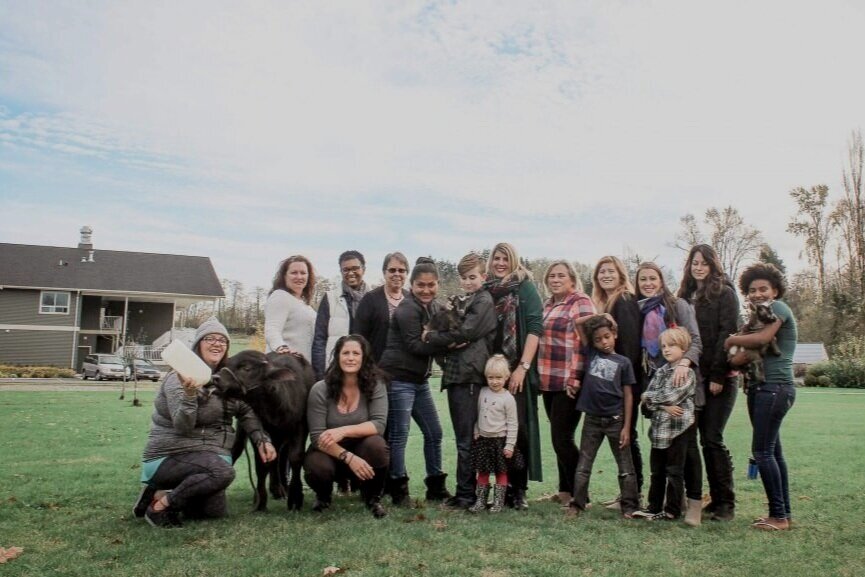
Built on Good Ground
Four decades ago, Helmet Boehm asked God, “What’s next?”
He had a government job in Northern Alberta, a house, security, and a life with his wife, Linda. But still, something was missing. He had a dream to start a farm where people could break free from addictions through hard work in the soil and through Jesus.
Boehm met a generous man named Wes Wagner at a conference. At the time, Wagner had bought a development property in Glenn Valley outside Langley. He too had a huge heart and a growing passion to help people, and especially the people in the downtown east side of Vancouver. The first time Boehm went to see Wagner’s property, he found an old farmhouse and two dilapidated barns. The land was hilly and muddy and had once served as a gravel pit. There were unfriendly people and animals living at the farm. Boehm surveyed the tall brush and trees and asked, “Is this where you want me, God?”
In 1981, the Boehms moved to the Wagner’s farm, and the ministry began.
And in the 40 years that followed, Wagner Hills Farm has served over 5,000 men and women living with addiction.
The Last 40 Years
1981
Boehm and Wagner drives daily to Vancouver’s Downtown Eastside to bring men back to help out around the farm as a reprieve from life in the city. At their request, Boehm sets up a tent so the men can stay out at the farm.
1982
The first residence is built to accommodate men who wish to be part of the developing work program and ministry.
1983
Wagner Hills Farm becomes a registered society with full charitable status.
1984-1993
Additional facilities are built, including residences, barns, offices, greenhouses, and a water reservoir.
1995-2005
The New Life Centre is built, which includes a classroom, dining hall, kitchen, and offices. Additional residences are also added to meet the growing demand.
2008
The women’s recovery program, known as House of Hope, is established in the Campbell Valley Farm District.
2015-2016
New Life Centre is redesigned.
2017
Temporary housing trailers are installed to accommodate more residents at the Men’s Campus.
2017-Present
Significant fundraising, preparation, and planning for upcoming building projects at the Men’s Campus.
2020
Wagner Hills purchases the land on which the Men’s Campus resides from the LCCFM.
A Decade of Growth
Implemented further counselling supports:
Our men access weekly one-on-one counselling sessions, based on trauma-informed practice. Other supports include step-based recovery models, group therapy, and classes to promote behavioural changes as well as relapse prevention.
Integrated options for continuing education: We support our residents who are attending trade school or university, opening up their opportunities upon our program completion. Residents may also complete high school during their first year.
Increased Farming Sustainability: We’ve made large strides to be a living, sustainable farm, reducing our impact by eating our farm-raised beef, pork, and fresh produce wherever possible.
Fostered stronger community relationships: Speakers, teachers, and worship leaders come to The Farm. We encourage residents’ families and the community to join us for chapel and meals. Our residents attend churches and life groups off campus to build support systems beyond our program.
Improved Amenities:
We’ve updated our facilities with high quality materials that will last. We’ve also upgraded our vehicles, making them more reliable and recognizable within our community.
Built relationships with other recovery organizations and associations: These connections with other recovery centres promote a joint effort towards help and healing, not competition and frustration. We’ve joined associations and attended conferences to be part of a greater, united community of recovery.
Developed systems for financial transparency and stewardship: Annual audits, budgets, and general meetings keep society members and stakeholders informed of our financial standing.
Increased reach and donations: Our fundraising events and various advertising initiatives help us reach new and existing donors. Past events include community dinners, Christmas banquets, golf tournaments, and fairs.

Give Today
For the last decade, we have been doing the necessary work to prepare for what’s ahead. We feel confident that now is the time to move forward and we ask that you would consider partnering with us to make this exciting project a reality.











